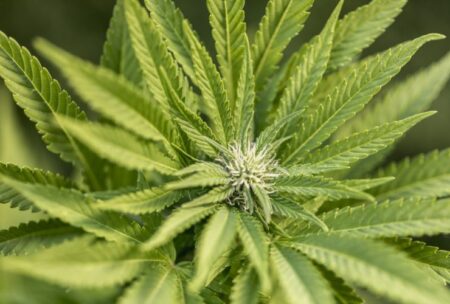May 8, 2020 – A custom cannabis therapy research company in partnership with the University of Lethbridge, and the University of Calgary, in Alberta, Canada, announced in the last couple of weeks that it had developed extracts from marijuana that show promise in treating COVID-19. In a paper appearing in PrePrints, and yet to be submitted to a peer-reviewed journal, the researchers from the university’s Department of Biological Sciences and from Pathway RX, a company developing cannabis therapies, describe the potential of using the anti-inflammatory properties of cannabinoid cannabidiol (CBD) to modulate gene expression and inflammation caused by COVID-19 infections.
When I began reading this paper and being on prescribed CBD oil for osteoarthritis, I was immediately intrigued. As a person who is still dealing with the COVmedical consequences of the virus, I was equally interested in the type of marijuana plant being used for the extraction of CBD. Clearly, the one I have been prescribed didn’t do the job for me. Despite that, there may be something to the chemical soup in marijuana plants that could prove beneficial in the fight against COVID-19. For the moment, however, call me an unhealthy skeptic.
The paper is entitled, “In Search of Preventative Strategies: Novel AntiInflammatory High-CBD Cannabis Sativa Extracts Modulate ACE2 Expression in COVID-19 Gateway Tissues.” It describes how CBD oil could inhibit COVID-19 viral entry into the lungs, nasal mucosa, kidneys, and gastrointestinal tract by modulating ACE2 levels in the tissues to decrease susceptibility. ACE2 is the acronym for a protein known as the Angiotensin-converting enzyme 2 which is found attached to the outer surfaces of cells found in our lungs, arteries, heart, kidney, and intestines.
In the paper it describes how CBD oil is used as a modulator of gene expression and inflammation in cancer treatment and that similarly it can serve to do the same for other body tissues. The initial data collected used models of oral, airway, and intestinal tissues and showed that CBD extracts from Cannabis Sativa regulated serine protease TMPRSS2, Transmembrane Protease Serine 2, another protein that COVID-19 specifically is using to gain entry into human cells.

In total, nine different Cannabis extracts were investigated on the various sample tissues. The extracts were applied to mimic normal medical application such as delivery by a mouth wash, oral capsules, oils, inhalers, and nebulizers. Cannabis Sativa extracts impact ACE2 gene expression. ACE2 levels in high-risk tissues such as those found in the lungs are seen as important in function as well as in helping the body’s natural ability to combat disease. The ability of the extract to inhibit COVID-19 from finding a gateway path into human cells was an encouraging finding.
The researchers further speculate that with over 100 phytocannabinoids beyond THC and CBD, the two most described in the literature, there may be unforeseen benefits to using whole-plant extracts as a preventive treatment administered as a mouthwash for both clinical and at-home use. The authors of the paper write that “such products ought to be tested for their potential to decrease viral entry via the oral mucosa.” and “given the current dire and rapidly evolving epidemiological situation, every possible therapeutic opportunity and avenue must be considered.”
The University of Lethbridge isn’t alone in researching the effectiveness of cannabis in the treatment of COVID-19. Research in Israel has been following a similar line of inquiry. It should be interesting to see how this work is viewed by the larger research community and if it inspires further work on developing marijuana extracts not just for their anti-inflammatory characteristics, but also anti-viral properties as well.
Drs. Igor and Olga Kovalchuk, principal authors of the paper, in a University of Lethbridge news release are quoted stating, “While our most successful extracts require further validation in a large-scale analysis and an animal model, our study is crucial for the future analysis of the effects of medical cannabis on COVID-19.”









